A lot. There are a number of schools of thought within feminism, some of them are better known than others. While there is a misconception that feminism is divided as a result of these various schools, the differences between the schools are differences in methodology and not differences in their end goal. All feminists want equality of the sexes. This has always been the main goal of feminism. But different types of feminism believe that female inequality is caused by different things. Few feminists fit in to only one school of thought.
The different schools are as follows:
Liberal Feminism: Liberal feminists accept the classical liberal notion that all people are inherently rational. Since women are people, women are rational. Liberal feminists believe that it is this rationality that makes women deserving of equal treatment.
Marxist Feminism: Marxist feminists believe that the inequality suffered by women is caused by capitalism. They believe that eliminating capitalism will bring about equality of the sexes.
Radical Feminism: Despite popular belief, radical feminism is not the idea that women are better than men. Radical feminists hold to the idea that female biology (our ability to get pregnant) is what causes the inequality we suffer. According to radical feminists, equality of the sexes won’t come until childbirth and child rearing aren’t only the duty of women. Radical feminists also believe that the patriarchy is responsible for this inequality. Patriarchy doesn’t mean that each individual man oppress all women. It means that there is a system of control whereby women and women’s bodies are controlled by men. It’s a systemic problem, not an individual problem.
Socialist Feminism: Socialist feminism mixes Marxist and Radical feminism. According to socialist feminists, both capitalism and the patriarchy cause the oppression of women. Some socialist feminists believe that capitalism and the patriarchy are one in the same thing. Others believe that they run parallel to each other, both oppressing women, but in different ways.
Cultural Feminism: Cultural feminists focus on gender, not sex. They believe that it is the behaviours and traits associated with women (nurturing, caring, emotional) that cause women to be oppressed. They tend to accept these traits as real and believe that women should be given equal rights because of these traits. Cultural feminists believe that the compassionate traits of women can only improve society, and can work with the rational traits of men.
Womanist (Intersectional) Feminism: Womanist theory was developed as an attempt to make feminism more inclusive. Traditionally, feminism focused on the issues faced by middle class white women. However, women of all classes, countries, and ethnicities, as well as women/females within the LGBT community, also suffered as a result of inequality of the sexes, so womanism was born. Womanist theory points out that there is no one cause of oppression, and different women/females have different experiences, so each case of oppression is unique. As such, we must look at the intersections (of various causes of oppression) where oppression occurs. Womanism tries to avoid privileging anyone.
Postmodern Feminism: Postmodern feminism is a collection of ideas. They avoid grand narratives of explaining oppression. Postmodernist feminists do not believe that there is any one cause of oppression. They also look at language and thought to see how it is masculine centered.
Third World Feminism: This form of feminism focuses on the problems faced by women in former colonies. Third wold feminists focus on the history of colonialism to determine the causes of women’s oppression.
Ecofeminism: Ecofeminism focuses on things like pollution that result from racism. For example, they point out how black and Latino communities are more affected by pollution than predominantly white communities. They then look at how women are affected by the racism and the pollution. They look at how women are hired to do certain jobs that are harmful because they can be paid less and are less likely to complain.
These are not the only feminist theories, but they are some of the best known theories. I hope this helps you understand the various types of feminism. If you would like more information, I would recommend reading Feminism by Sally J. Scholz.
Don’t forget to take my surveys if you haven’t already:
Situations that may or may not be considered Feminist issues:
http://kwiksurveys.com/s.asp?sid=xxiz033c05yo72v472614
Are various Feminist causes helpful or hurtful for the Feminist movement?http://kwiksurveys.com/s.asp?sid=i8d3kq6z73ems49471695
How do you perceive Feminism?
http://kwiksurveys.com/s.asp?sid=4p48z0rwjwooxpf471689
Does Feminist have a bad reputation?
http://kwiksurveys.com/s.asp?sid=r4t8nurh0tyxvqt470762
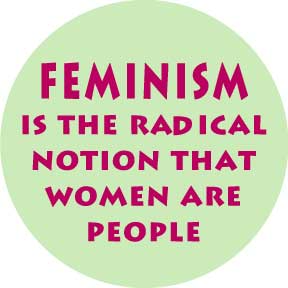
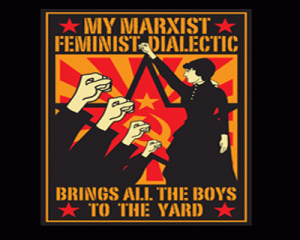
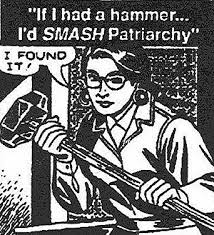

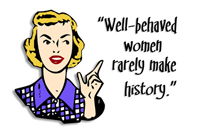
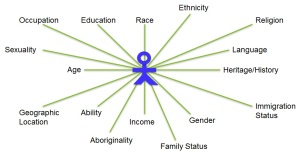
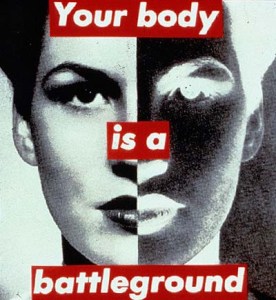
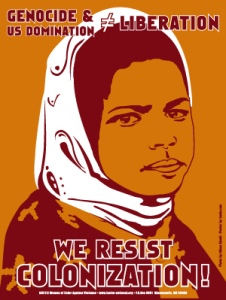

June 19th, 2015 at 11:50 am
[…] How Many Kinds of Feminism Are There? […]
LikeLiked by 1 person
May 21st, 2015 at 11:51 am
I think your review of feminism may need to include some of the complexities of individual positions that may indeed be arguably misandrist.
There are indeed some feminists who make claims that femininity is superior to masculinity, however constructed, or that men qua men are responsible for certain social problems. Others will not go that far, but will assert, for example, that some classes should be female-only because of the research that indicates that women often feel silenced in mixed discussion groups.
I think it’s also important to consider the range of feminists who tend to be more in favor of more coercive policies. In my interactions with anti-porn feminists, for example, I have seen some who assert that we should use obscenity laws to regulate pornography, or otherwise have more monitoring of the industry than exists.
LikeLike
May 21st, 2015 at 7:12 pm
Well if you want to bring up misandrist positions feel free, although more generally, most sexist options of men and women are negative toward only the feminine traits. As such most ire pointed at men is actually still misogynistic because the men are being referred to as feminine as though it’s a negative.
Though more generally when we talking about misogyny we are talking about it as a form of systematic oppression, and while I’m certainty we can find feminists who are bigoted towards men in a way which could be defined as misandrist, we are not going to find that systematic oppression like we see against femininity and women. As such I’m less concerned since it’s not a systemic problem. Like for example feminist can some time hold strait up sexist ideas, and have though the past. The whole process that has been and continues to be feminism is a slow and gradual change of culture, and as such there are many growing pains. So if for example I said something misandrist (accepting I will make jests as counter examples occasionally) I’d like to hear that you found what I said is problematic and why.
For the case of sex-negative feminists, or anti-porn feminists I general disagree with their overall philosophy (ie most of what is second wave feminism). Now I do think it was valuable, but I think we’ve progressed passed the simplistic notion that all oppression can be linked back to the patriarchy which in turn is an over implication of second wave feminism. Now I’m particular position of sex work of all kinds is only developed to the point where the most obvious course of action is to legal and tax it like and comparable industry, although make sure that women in the industry are able to govern themselves and hire their own people. Although will say that obscenity laws are probably best left in the past.
Though I will return to your initial point. The problem of discussing individual bigotry within the context of larger organization of thought is that while it is fair to say that there isn’t much to generalize about. The little bit of bigotry we all hold is diverse as it is hard to pin point. While it is important to try to locate it and challenge it you must do so on a case by case basis.
LikeLike
May 22nd, 2015 at 7:39 pm
I disagree entirely with the assertion that most traits that are viewed as sexist are against women. I have been told, as a cross-section, the following:
*Men can’t keep it in their pants.
*Men will just inevitably rape women, and all of them might be rapists if given the chance. (I heard this from a victim basically saying that she couldn’t be mad at men for fulfilling what they are basically designed to do).
*Men are messy and disorganized.
*Men are insensitive.
*Men are inherently gross and do not understand what women want.
*All men are philanderers.
*Men deserve to be castrated.
Sure, I’ve worked with some people with some real reason to be angry at men. And the big difference, in my mind, is that in most cases men are not called upon to “represent” or exceed their gender as often as women are. But I have indeed been forced to “represent” as a man, to prove with my conduct and word that I was not the same as the worst people with testicles.
Yes, systematic oppression does not overwhelmingly exist against men. There are some examples, such as unequal outcomes favoring women in the criminal justice system, but these examples in turn generally are exceptions that prove the rule, in that they are generally a concomitant of privilege and power. There’s no disagreement on that front on my end, just as I’d note that people of color having bigoted attitudes against whites doesn’t matter much sociologically because they’re not in a position of power. But ideologically, if we want to move forward, we have to have concepts that help us work together and bring out our best potential. We won’t survive as a species otherwise.
I’d hope to God that we’ve progressed past the idea that all problems can be traced back to the patriarchy, even all problems women face. Still, I find myself constantly having to defend, mostly against Marxists and feminists, the idea that classism, racism, sexism/misogyny/patriarchy, homophobia and heteronormativity, and statism are all interconnected systems of oppression that mutually reinforce each other. It is possible, though, to view a lot of what happens in society as an outcome of the kinship and gender system. It’s a matter of being able to use multiple lenses to me.
I disagree wholeheartedly that it is hard to pinpoint. In my case, I had to prove that I was not a rapist, over and over again, just to be able to be friends with and help people I cared about. That was very real to me. We have to always realize that those times that the dominant group faces discrimination that it is still serious. It’s just not sociologically the same as the discrimination against the subordinate group. My favorite example, though it does invoke Godwin’s law, is that the hatred of the Nazis toward the Warsaw Jews cannot be morally or practically compared to the hatred of the Warsaw Jews towards Nazis or even innocent Germans. But we have to stand up against all of it because we have to put a line in the sand and say there is no excuse for hate. We can’t pretend that because we can’t measure it in dollars and cents that it doesn’t matter.
LikeLike
May 24th, 2015 at 3:28 am
Well first I believe said feminine traits not women. Also you said even in some of your bullet point that people don’t even see all of those these as bad, but as inevitable. Yes those things are sexist although I think we can better boil down those bullet point to.
*Men are unable to control their sexual cravings and are only concerned with sexual things.
*Men are messy and disorganized.
*Men are insensitive.
And that last one in your comment is not a common view most people do not think that castrating all men is in anyway a valid option, sure some people do, but some people think the moon landing was a hoax, and that the world was going to end in 2012.
Also in refrence o the three points I put above, the last two are the consequence of people thinking women are neat and organized, and sensitive. And the sensitive one came from the idea that women are emotion.
People also think that
*Men are rational/women irrational
*Men Strong/women weak
*Men are competent/ Women are incompetent
*Men can’t nurture/Women are naturally good at nurturing
… and a whole lot more then I can think of at the moment.
Now I stand beside the idea that women tend to get the brunt of the bad, but I did not say that or at least I didn’t mean to say that men are not affected. Also most of these example are actually misogynistic in there origin. The problem is if your going to divvy out sex trait is a manner where sex has a monopoly on a given set of trait you’re always going to sacrifice something even if you’re part of the privileged sex. Though women still get the short end of the stick, being viewed as less rational, more emotional (less in control), weaker, and less competent then men. Also women are often seen as not having sexual autonomy, so men can just take what they want within certain parameters. This can and very regularly is blown out to be men can’t control their sexual desires and are sex crazed monsters, but then women are blamed for egging on men “since we all know they can’t control themselves, so it must have been your fault.”
I am glad that you seem to understand how privilege and power work to a large degree, that’s excellent.
As for your second last paragraph, welcome to being an intersectional feminist, it’s a though road because people don’t really like the complexity that comes with intersectionality, but that why we just have to keep plugging away, because it does work, it just takes time.
Now the fact is so long as there is a significant rape culture, where a high percentage of women will be victimized by a male perpetrator. The fact is clear, any given man, you or me, is a potential rapist. We might know that we are not a rapist, but a stranger does not, and so it is not right to say they must place to put trust in us, but it is our job to be trust worthy. Sure it is not fair, but living within a rape culture is very much unfair, and I don’t think men get the worse of it. So rather than say that women need to stop being bigoted, we need to help make sure men don’t feel entitled to the bodies of women, and that men understand what consent actually is.
Also I don’t think it’s the case that most women hate men, in a manner like your discuss in the final paragraph, only that we (as a culture) teach women to be wary of men, and that women actually have good reason to be wary. I really don’t see the hate connection working when we start to expand it out.
Also don’t get me wrong I think your saying some good stuff, but I also think your picking out cracks when we are still dealing with the raviene. I totaly think we should challange bigotry when we see it, but I genunily don’t think the big problem you;ve pointed out currently requier mass action. Perhaps in the future, but I think we have bigger fish to fry, and by chananging rape culture we will in turn challange most of the issues you bought up.
Though really if you see something you don’t agree with, particularly if it’s harmful, speak up. We all have room to improve.
Also on a mildly related note you might get a kick out of this.
LikeLike
May 24th, 2015 at 11:56 am
Okay, but the problem is that those male traits are unquestionably negative. Maybe people are more willing to accept them as cute instead of women who are viewed as irrational, but again, I’ve been on the receiving end of those stereotypes, and it’s not fun. There’s more, too. I have multiple friends who have told me that it’s funny that the stereotype is that it’s women who don’t want to commit and are bad at expressing love, but my entire romantic history has been marked by the opposite trend. One person I care about has even said that it’s ironic that I care about her the way a lot of women wish their boyfriends would but it doesn’t work for her. None of that is fun, and while it doesn’t impact my opportunities for success in an opportunity structure that remains male-dominated, it does act as a barrier for me to get many of the things I do in fact want and it is dehumanizing.
I agree that many of the assumptions about men, such as them being criminal because of an assumption of male strength and ability to perform tasks, are based in patriarchy, but that really doesn’t matter much when it is a stereotype that is ultimately negative that one does not want.
Of course most people don’t think castrating men is a valid option, but most people don’t think women should be raped either. But in the latter case, we view the more subtle aspects of rape culture as being important. Well, there is also a trajectory in feminism and amongst women that I’ve perceived that may not be explicitly misandrist but ends up reifying misandrist norms and thereby giving some rhetorical space for those who do have tremendous anger at men (or who want to control and limit men’s latitude or implement some kind of matriarchy). For example: Plenty of feminists will opine that it is male leaders that cause a lot of our problems. But that assumption not only ignores that Thatcher was just as brutal and militaristic as anyone else, but also basically implies that female leadership would be superior. That’s a misandrist idea. I do think that we’d benefit from gender diversity in leadership and I do think that there may be some kind of signal as a result of seeing people who were subordinated in some way moving into the higher echelons of power, but this is an argument that has to be made carefully, and we often struggle to do so collectively (myself included).
I think saying that women get the brunt of the dehumanization ultimately ignores that any dehumanization stings. You just need to be lumped in rapists once to be insulted and hurt pretty deeply. I think the better formulation is that the consistency of dehumanization of women combined with their subordinate status in other arenas has a cumulative effect on psychology, stress, etc. It may also be that less men will encounter such dehumanization, either because they don’t very much care what a woman has to say or because they simply don’t care about the allegation or because it won’t be floated to them. But I have had nearly every one of my male friends labor in the eyes of people they care about under the stereotype of stalker, or misogynist, or rapist, or emotionally abusive person, no matter the validity of those assertions. So it’s a commonplace problem.
A lot of my work is about privilege and power. But I’ve come to believe over time that no message that doesn’t emphasize first and foremost our shared humanity, our shared connection to each other, and our deep need for empathy for survival is going to fail. We have to have an ethos that allows us to put aside the corruption of the past and move forward. So we have to talk about privilege, but we have to talk about it in a constructive way. My favorite microcosm of this dynamic is in Terminator 2. Sarah Connor rightfully points out to Miles Dyson that men like Miles use the idea of intellectual creations, especially ones of great power or grandeur, as a substitute for the creative process of giving birth to life. That’s a fair criticism. But John tells her that “We have to be a little more constructive, okay?” Sarah’s criticism doesn’t allow Miles to do anything but be as bad as he is, and it also makes her similarly bad, similarly judgmental and cruel. I try to emulate John. That idealism, that idea that we can come together and all be better, is the only way we’ll move forward. It’s hard to balance that optimism with holding people really accountable, but it’s something that social justice activists have to get a lot better at if we want to make inroads. We’re all flawed, and every one of us alive has in some way failed to stop injustice. We all have to move forward together.
It’s not just being an “intersectional feminist”. It’s being an intersectional pareconist, an intersectional polyculturalist and illuminated individualist and anti-racist, an intersectional anarchist. It’s a broad theory of “spheres”. I strongly recommend looking up Michael Albert’s analysis of these spheres: http://en.wikipedia.org/wiki/Complementary_holism is a good place to start.
The reason I’m picking at cracks is because people fall into them just as readily as the ravine. When people like me start trying to do good in our own way, we are criticized by others who say, “You’re white, you’re male, you’re straight, you’re middle-class”. We ask, “Okay, what are we supposed to do about that?” And there is not a response of, “Your privileged status can be an asset. Your voice matters too”. That has to be the way we talk, and so me talking about the cracks is a way of humanizing the discussion again. When we can get people to share what hurts them too, what they care about, why it stings when their girlfriends or sisters or wives hold them to a lower standard because “That’s just what guys do”, then that’s the basis for improvement. Sociological context should never be used to deny the real pain of others. Instead, it should be used as a stepping stone. We should say, “Now, you know how dehumanizing it was to be told that because you are a man you’re the same cloth as men who commit soul murder who you abhor? Imagine being told that because you are a man you are inherently irrational and nagging, so that your complaints aren’t listened to. Then imagine not getting a job because ‘Girls can’t like video games, they must be getting a job in the IT sector to impress a boyfriend’ or ‘She’ll just get knocked up and leave the company anyway’. Imagine if every magazine reminded you that you are in fact just a rapist, the way that magazines remind women that they need to be fit, clean, perfect cooks and perfect homemakers, thin and beautiful”.
So I do indeed speak up, about everything I believe in, no matter how privilege may be playing into it, because I refuse to be silent and I refuse to accept compromises or social niceties, even ones made by wonderfully progressive people, unless those are vindicated by real love and care.
LikeLike
May 24th, 2015 at 12:00 pm
Also, that video was brilliant, but there is one codicil. Sometimes, men’s rights advocates are expressing a serious complaint, just not one that’s actually about women or feminists. “It’s tough for a man to get a job”. Okay, it’s tough for EVERYONE to get a job. Even if affirmative action still existed in a meaningful way, as it should, it’d be noise compared to the signal of globalization. So we have to separate out carefully when people have a real complaint. This is also something that happens in the anti-racist struggle. A lot of white folks are really pissed off at Hispanics or blacks for losing their jobs or facing crime. That’s fair. What we have to say isn’t, “Stop whining” but rather, “You’re misdiagnosing the problem”.
LikeLike
May 24th, 2015 at 11:57 pm
You must understand that while your experience are perfectly valid anecdotal evidence is not by itself generalizable While your experience might be counter to the norm that does not disprove or invalidate the norm, or when people talk about said norm.
The more you speak the less and less I actually think you have personally dealt with many feminist, or if you have you’ve only really dealt with a handful of more radical feminists. Why I say this is because you’re dealing with the most extreme views, the edge case in the feminist movement. The simple fact is that for most of these case there already exist feminist who speak out against it.
“Thatcher was just as brutal and militaristic as anyone else, but also basically implies that female leadership would be superior. That’s a misandrist idea.”
No your misusing the word misandrist, that’s a sexist idea plain and simple. Or if you want to claim that sexism is only in case of systematic oppression, which you may do, it depends of the venue and how your discussing thing, then it is a bigoted idea. but again misandry is the hatred or dislike of men. Women > Men is essentially the antithesis of our patriarchal system, but gain you must be clear in your definition, and you must define them. Particularly when you’re using them in a non-standard way.
“I think saying that women get the brunt of the dehumanization ultimately ignores that any dehumanization stings.”
This is sounding more and more like “I want feminism to be about me.” Now yes some time people can think when they hear that women get all the dehumanization and everyone else can suck it, but that’s ridiculous, and when you hear it then you say it’s still ,because dehumanization is far boarder and effects different groups in different way. Though seriously, if you’re worried about it stinging, they it’s probably not so bad. If you’re worried about being assaulted because your being dehumanized that a bigger deal.
“But I have had nearly every one of my male friends labor in the eyes of people they care about under the stereotype of stalker, or misogynist, or rapist, or emotionally abusive person, no matter the validity of those assertions. So it’s a commonplace problem.”
Really? either your friends are all really unlucky or you might need to get some better friends. This is really only a common tale of woe in MRA circles. Again your confusing antidote for statistics. Don’t do that, it’s not logically sound.
“It’s not just being an “intersectional feminist”. It’s being an intersectional pareconist, an intersectional polyculturalist and illuminated individualist and anti-racist, an intersectional anarchist.”
Well first of we have to pick our battles, we can’t be it all, all of time. Also illuminated individualist, an intersectional anarchist, intersectional pareconist. Those are you opinions, but good luck getting any sizable group of people to accept them, myself included. To be an anarchist is to try to make a fantasy real. It’s little more than wishful thinking. I say this because it never has worked for extended periods of time, expert perhaps in very small tight knit communities. It’s just not something we can reasonably scale up.
“Sometimes, men’s rights advocates are expressing a serious complaint”
I’d replace the sometimes with almost never, and then I’d mention that they also almost never do anything about it but bring it up long enough to put a smoke screen to attack feminists. There are exceptions, and there are a lot of good intentioned guts out there that loosely affiliate with MRA movements, but these people almost never actually enact any of the kinds of changes they claim to be interested in.
I’m seeing some good in what you’re saying, but in certain ways your actually too idealistic I’m pretty sure. For me to say that is actually quite unpleasant, but the manner in which your bring up some of these issues put them all on seemingly equal or almost equal footing and I don’t think that’s the right tact to take. Now you do what you think is right, but be prepared to make comprise because you will not win every battle, nor will you always pick the right fight or right on the right side. The same goes to me as well.
Only other think I’d say is keep talking about your ideas, but your form, and your tact will not make friends with many feminist because they will come off a wrongheaded. This is one area we all have to compromise is language, because if we don’t compromise and remain clear without language we will talk past each other, we defeats the whole process.
Like looking back over your posts it’s also clear that you need to refine your ideas further, it’s just hard to really pick out some of what you’re saying, so it’s easy to jump to conclusions. I’ve been taking my time, but even then I couldn’t be bothered to actually comment on each point of found problems with. Again I don’t think you’re all the bad, but I also want to throttle you a little bit. So ya… not sure how you should take that. Keep at it I suppose.
Withteeth
LikeLike
May 25th, 2015 at 1:38 pm
But my experiences are in fact another norm. While I may have endured more of them than others, I’ve seen this pattern repeat itself in the lives of virtually all of my male friends. We can’t as feminists simultaneously claim that there is a substantial hidden undercurrent of female exploitation and harm and then claim that it won’t affect men. Of course it will.
I have personally dealt with a host of not only wonderful feminists, but also wonderful women who had rejected the feminist label but were doing wonderful work about sex slavery, class privilege, human rights, etc. etc. But when you discuss online, you unfortunately see a lot of the crazies come out, and I have actually not seen a lot of the wonderful feminists take the time to do consciousness building. I’ve also seen even great feminists that I respect quite a bit really misunderstand some core issues. Lydia Sargent, for example, had a great series of very ironic posts about pop culture for a long time, but every time she came to video games, it was clear that she had virtually zero knowledge or reference context about video games, their visual language, etc.
I’m on the Feminist Majority Foundation mailing list, and while I do disagree with some of their takes, their mailing list is overwhelmingly about pretty basic non-culture war issues: Criminological policy regarding rape, abortion rights, wage inequality, etc. I actually think they could even get a little MORE cultural in their focus and still be perfectly on the reasonable end of the spectrum. But what I have found repeatedly is that the number of unreasonable, extreme, angry, or opportunistic people in any movement, from feminists to Marxists, is much higher than any of us would like to admit, and we so often get into a “in-the-trenches” mentality that we can’t see that some of the people nominally on our side may need to be talked to as well.
“Misandrist” means to hate men. I think that to say that any male leader is the source of militaristic violence as a result of them being male is a misandrist statement just as much as “Women are manipulative” is not just sexist but misogynistic. Blaming male leaders or male scientists for the world’s problems, which I would agree is not the feminist mainstream but occurs more often than we’d like to admit (I’ve been guilty of it myself), is not akin to saying a more neutral stereotype like “Women can’t drive” or “Men are bad at asking for directions”. Ergo, it’s not sexist, it is deeply misandrist. It is an argument based on the moral inferiority of men qua men (instead of the more nuanced version that might argue that there is a tendency amongst male politicians due to privilege to, say, ignore the needs of welfare mothers or be willing to throw bombs around without noticing the impact it might have on widows). Since the argument is often provided by deeply political people, or at least people angry about politics, it’s almost never said neutrally, but with quite a bit of hate behind it. I think that your correction here not only evinces a need to split hairs but also a pretty disturbingly narrow definition of misandry. If that isn’t misandrist, I would wonder what your definition of misandry would be and what would be a clearly misandrist statement to you.
“This is sounding more and more like “I want feminism to be about me.””
It says no such thing. When we talk about things like rape culture, or the routine dehumanization of women in video games or pop culture, or sexualization, or whatever else, we are talking about dehumanization within a system of patriarchy, are we not? But if men can be dehumanized as well, as a direct result of that system of patriarchy (and this has to be understood as a much bigger tragedy than just a dismissive statement of “PHMT”), then that matters to a feminist perspective, both theoretically and practically. We wouldn’t be able to actually really work on patriarchy unless we understood those impacts. So, to be clear: Because of patriarchy’s influence on rape culture, which I agree is a real phenomenon, I have in turn had to defend myself against the idea that I am in fact just as dangerous as a stalker, or a rapist, from women who I actually helped prevent the suicides of and whom will admit that they may not be alive because of me. That stings in ways that I can’t even communicate (especially since you don’t really remember how much it hurt until it happens again), and you can’t even be arsed to say “That sucks”. That’s doctrinaire. That’s what I’m trying to talk about. We are talking about real human beings. Just saying “Well, men going to prison more often than women is just a result of PHMT” or even your much fairer longer-form representation doesn’t cut it. I’d strongly recommend you read Tim Wise’s repeated analyses of Columbine. Wise makes utterly clear how the white privilege of the kids at Columbine didn’t matter for one crucial moment, and that’s the only time their white privilege had to hurt them because it cost their lives. We have to be able to talk about real individual human stories and not just sociological averages. That’s not asking feminism to be about me, that’s asking feminism (and progressivism and anarchism and anti-racism and anti-capitalism and anti-globalization) to be about people. It’s asking feminists, male and female, myself included, to give a shit when someone says, “I’m angry that I feel like society is changing under my feet and all the things I came up believing were good and right are being attacked” (which is a huge part of the men’s rights movement in practice).
“I’d replace the sometimes with almost never, and then I’d mention that they also almost never do anything about it but bring it up long enough to put a smoke screen to attack feminists.”
Oh, come on now! Look, I have plenty of contempt for the men’s rights movement too. I agree with the video you sent me that at their best the men’s rights movements are basically saying “Wait, I know that guy is on fire, but what is this drowning guy?!” I know that a lot of them are misogynistic and horrible jerks. I’ve had the wonderful privilege of debating with a host of them back to back as a result of my criticism of Maddox.
But my analogy to racism was specifically chosen because I was talking about people like Stormfront advocates, neo-Nazis, and people who aren’t explicitly white nationalists but who would consider voting for people like David Duke. I’ve interacted with these people a ton. They say horrible things: Some of the nicest ones want voluntary segregation of the races. Tim Wise recounts that in his work against Duke that he actually spent time talking to some of the people that were considering voting for Duke, and what they were talking about when one got the defensive anger to simmer down was crime, poverty, unemployment, loss of dignity, loss of a feeling of safety, anger at a world that was leaving them behind. Most men’s rights advocates, by virtue of being statistically similar to many men, are not billionaires. They are not the 1%. They are being screwed over by society just as readily as any poor black single mother. They may be facing paycheck-to-paycheck living and serious homelessness. A lot of the people who vote Republican are the higher end of the working class or are in the anxious middle class and are one or two paychecks away from serious trouble. But because the Left failed so totally in this country, they have no way of characterizing that utterly institutional failure than “It must be because of multiculturalism” or “It must be because feminists took away the traditional power structure”. Read the worst of the redpill literature, where they’re talking about real problems in human relationships that they just happen to think should be solved by embracing a weird BDSM-tinged version of 1950s gender norms. Read the complaints of someone who insists that they lost their job because of affirmative action or because of misandry. They’re usually angry and irrational, but that’s what happens when people get hurt. This background of the utter failure of our institutions is why we have a proto-fascist religious right that has positions that are pretty analogous to the hardcore religious in Iran. It’s why so many white folks, and men, and middle-class people keep voting for politicians that attack their class interests and seem to not care that their policies might lead us to die from global warming or nuclear hellfire. It’s why the decade that people are the most nostalgic about is the 1950s. It’s a loss of hope. All of these issues are interconnected, because they’re all a result of a system of massive inequality and the necessary ideological and military violence to sustain it. Until we can understand that and all it means, we can’t do good activism.
I agree utterly with compromising about language, but isn’t that a mutual process? I didn’t quibble about any of your choices of words, you decided to say that a claim that I was making was sexist instead of misandrist (as if the distinction was actually really a relevant one to make given that I think we’d both agree that both are bad). I have tried to talk about my actual experiences this whole time and you have not been able to actually engage me on that front, and I have certainly not come even close to saying that my experiences prove patriarchy doesn’t exist or that men don’t have advantages on average (indeed, quite the opposite, I’ve clearly stated that these dehumanizing moments are the insidious cost of that very system of privilege). If you can’t do that, then you can’t engage even with a very middle-of-the-road conservative.
People like Dr. King, Paulo Freire, Wollstonecraft, Gandhi, Orwell, etc. all came to realize something: The liberation of any one group of people was actually about the liberation of everyone. We are all trapped by injustice, not one of us is free until all chains are broken. That idea has to be first and foremost in our rhetoric because it’s true, it’s human, and it happens to be the only thing that will get people to be willing to come to the bargaining table. I know that it’s tough to talk about that while also talking about the difference between the Jews in the Warsaw ghetto and the Nazis in the Warsaw ghetto, but we have to get good at making that distinction fast.
This is a comments section, so I’m not trying to get extremely into detail (though in this post I tried to be very clear about the interconnection between these ideas), but I can certainly claim that your ideas could also use some more explication. I’m getting pretty granular here. I will be the first to admit I see connections that others don’t, but I also think you are operating from a worldview that might not allow you to see that some of the objections I’ve raised are actually interrelated.
LikeLike
April 14th, 2015 at 4:51 pm
[…] How Many Kinds of Feminism Are There? […]
LikeLike
April 12th, 2015 at 4:21 pm
Reblogged this on Gypsy Rue and commented:
Excellent post explaining many different schools of feminism!
LikeLike
April 6th, 2015 at 5:20 am
This was a very informative post!
LikeLike
January 20th, 2015 at 11:53 am
This was a very informative post! The Kid has been unfortunately ignorant of anything involving feminism so I I wanted to say thanks for sharing this. Also, thank you for following my blog.
LikeLike
January 19th, 2015 at 6:33 pm
Two. One I give a shit about. And one I dont give a shit about.
LikeLike
January 19th, 2015 at 4:04 pm
I don’t think that the idea of the patriarchy is anywhere near specific to radical feminism, especially not with your definition of radical feminism.
LikeLike
January 19th, 2015 at 4:22 pm
It comes from radical feminism. It’s a commonly accepted element within feminism, but it was adopted from radical feminism.
LikeLike
January 19th, 2015 at 10:02 am
A few interesting fiction books related to ideas about feminism:
The Woman’s Room by Marilyn French
The Female Man by Joanna Russ
The Gate to Women’s Country by Sherri Tepper
LikeLike
January 19th, 2015 at 7:51 am
I like the term “difference feminism.” I think it is similar to what you refer to as “cultural feminism.”
There’s another type of ecofeminism that sees feminism as the way to save the environment. The idea is that women are more nurturing and men want to dominate. Men’s urge to dominate has lead to both patriarchy and environmental disaster. I think the theory is to change the world in a wholistic way so that women or femininity are in charge and we take care of the environment.
I don’t think radical feminism is about the idea that pregnancy is the problem. I think it’s about the idea that there is a patriarchal system that needs to be dismantled. There are more than one possible approaches to this. In practice, radical feminists have tended to focus on ending violence and sexual violence against women. Some radical feminists believe that culture is the cause of all sex differences and some believe that there are biological sex differences.
I think that the goals of different forms of feminism are similar, but different in important ways. Marxist feminism, for example, puts more emphasis on Marxism than feminism. You change the world to make it Communist and that helps women, not you change the world to help women. Radical feminism, on the other hand, is specifically about getting rid of social structures that oppress women.
Another big difference has to do with difference feminism. Difference feminism is about making sure that women have power and rights. Within that, it is not about women and men being the same. So some difference feminists might promote the idea that we need to value nurturing and child care more. Others might push for reforms that women need like flexible work schedules. Some difference feminists are not pushing for women and men to have the same roles.
Although there is no school called power feminism, I think there is a type of feminism that focuses on the idea that the important thing to do is to get individual women into positions of power. It’s not my favorite type of feminism and it’s most popular among elite women.
LikeLike
January 19th, 2015 at 3:29 am
Reblogged this on Rosie Writes… and commented:
This is a really interesting blog post, I never realised just how many different flavours of feminism there were. I suppose as people have come to feminism with different experiences then they’d have a different interpretation of the route to the same goal – equality of the sexes.
LikeLike
January 19th, 2015 at 2:39 am
Thank you so much for this. I don’t think I properly understood what all the different types meant until now! I’m really enjoying your posts on feminism.
LikeLike
January 19th, 2015 at 2:12 am
I should call you a Queen-be on this article. Its so heavenly heroic. I bet you’re feeling like a heroine right now!
LikeLike
January 19th, 2015 at 1:51 am
Reblogged this on Uniqely Mustered and commented:
There are innumerable kinds of feminism that a section of it is studied in the field of Psychology and to the average Women, there are a mystery to themselves. It goes beyond the points outlined here and could be as well stuck off. But the point to agree with is that, There are Many Kinds Of Feminism and its so broad, it becomes Mysterious on the Holistic mystery on the sex of Women.
LikeLike
January 19th, 2015 at 1:29 am
The title should read “How many kinds of Feminism are there?” : ) nice post though.
LikeLike
January 19th, 2015 at 4:27 pm
I have no idea how I missed that. Thanks for the heads up.
LikeLiked by 1 person
January 19th, 2015 at 12:30 am
I’m having difficulty figuring out how capitalism oppresses women. And what it could be replaced with.
Also, how pollution oppresses women more.
LikeLike
January 19th, 2015 at 4:50 am
I don’t really understand ecofeminism either.
However, economic feminism is inherently tied up in cultural feminism. Here’s a (perhaps trite) look at one of the ways it can happen):
Men tend to be more dissocial* and tend to be expected to be more dissocial than women. In fact, dissocial behaviours are thought to be masculine ones (e.g. ruthless pragmatism)
Dissocial behaviours can be highly beneficial in the decision making you would expect in high-power jobs (managers, board members, Directors etc). This is expected to always be true and is a part of established economic theory. (However, it is slowly being overturned by research into the benefits of traditionally feminine traits in management.)
This is essentially an amoral fact. It is about the suitability of traits to economic function. Feminism comes in as a response to the perceived inequality.
* formerly: sociopathic. But that word literally means ‘dissocial to the extent of being a dysfunction. Dissocial allows the full spectrum to be seen.
Fun footnote: All this depends on how you measure “equality”. I would measure equality in terms of equality of opportunity. I therefore don’t bat an eyelid at discovering there are fewer women in high-powered roles. What does disturb me is research showing that if you give employers completely identical CVs, but one with a man’s name and the other with a woman’s name the employers tend to prefer the male CV. That is inequality in opportunity (and a social, not an economic, problem).
Interesting footnote: research shows that typically feminine traits in high-positions can actually mean developing a more efficient workforce with lower attrition. This is thought to be because of the individuals feeling valued and therefore putting in the time instead of simply working to rule.
LikeLike
January 19th, 2015 at 12:20 pm
I see what you are saying, I’m just not sure that is the fault of “capitalism” and even if it were, what effective system could replace it?
LikeLiked by 1 person
January 18th, 2015 at 11:23 pm
Reblogged this on The Informative Man.
LikeLike